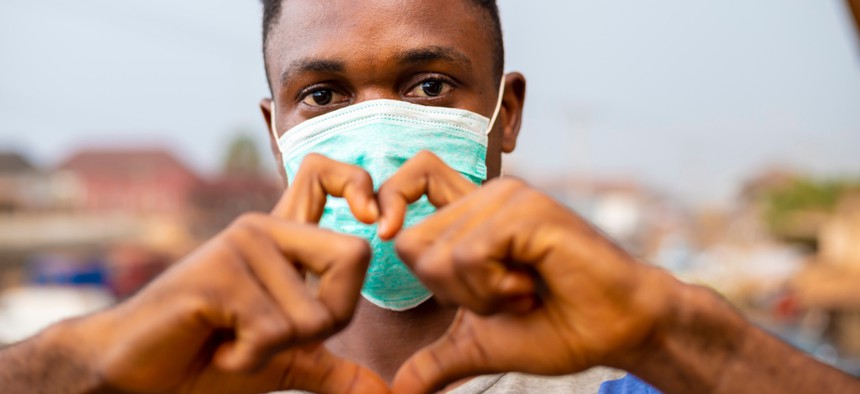
Shutterstock.com
Face Coverings Could Save 130,000 American Lives from COVID-19 by March
A powerful new study models just how critical this simple, low-cost step will be this winter and through the course of this pandemic.
The COVID-19 pandemic has already claimed the lives of more than 230,000 Americans, the population of a mid-sized U.S. city. As we look ahead to winter and the coming flu season, the question weighing on the minds of most folks is: Can we pull together to contain the spread of this virus and limit its growing death toll?
I believe that we can, but only if each of us gets fully engaged with the public health recommendations. We need all Americans to do the right thing and wear a mask in public to protect themselves and their communities from spreading the virus. Driving home this point is a powerful new study that models just how critical this simple, low-cost step will be this winter and through the course of this pandemic.
Right now, it’s estimated that about half of Americans always wear a mask in public. According to the new study, published in Nature Medicine, if this incomplete rate of mask-wearing continues and social distancing guidelines are not adhered to, the total number of COVID-19 deaths in the United States could soar to more than 1 million by the end of February.
However, the model doesn’t accept that we’ll actually end up at this daunting number. It anticipates that once COVID mortality reaches a daily threshold of 8 deaths per 1 million citizens, U.S. states would reinstate limits on social and economic activity—as much of Europe is now doing. If so, the model predicts that by March, such state-sanctioned measures would cut the projected number of deaths in half to about 510,000—though that would still add another 280,000 lives lost to this devastating virus.
The authors, led by Christopher Murray, Institute of Health Metrics and Evaluations, University of Washington School of Medicine, Seattle, show that we can do better than that. But doing better will require action by all of us. If 95 percent of people in the U.S. began wearing masks in public right now, the death toll would drop by March from the projected 510,000 to about 380,000.
In other words, if most Americans pulled together to do the right thing and wore a mask in public, this simple, selfless act would save more than 130,000 lives in the next few months alone. If mask-wearers increased to just 85 percent, the model predicts it would save about 96,000 lives across the country.
What’s important here aren’t the precise numbers. It’s the realization that, under any scenario, this pandemic is far from over, and, together, we have it within our power to shape what happens next. If more people make the decision to wear masks in public today, it could help to delay—or possibly even prevent—the need for future shutdowns. As such, the widespread use of face coverings has the potential to protect lives while also minimizing further damage to the economy and American livelihoods. It’s a point that NIH’s Anthony Fauci and colleagues presented quite well in a recent commentary in JAMA.
As we anxiously await the approved vaccines for COVID-19 and other advances in its prevention and treatment, the life-saving potential of face coverings simply can’t be overstated. I know that many people are tired of this message, and, unfortunately, mask-wearing has been tangled up in political perspectives at this time of deep divisions in our country.
But think about it in the same way you think about putting on your seat belt—a minor inconvenience that can save lives. I’m careful to wear a mask outside my home every time I’m out and about. But, ultimately, saving lives and livelihoods as we head into these winter months will require a collective effort from all of us.
To do so, each of us needs to follow these three W’s: Wear a mask. Watch your distance (stay 6 feet apart). Wash your hands often.







